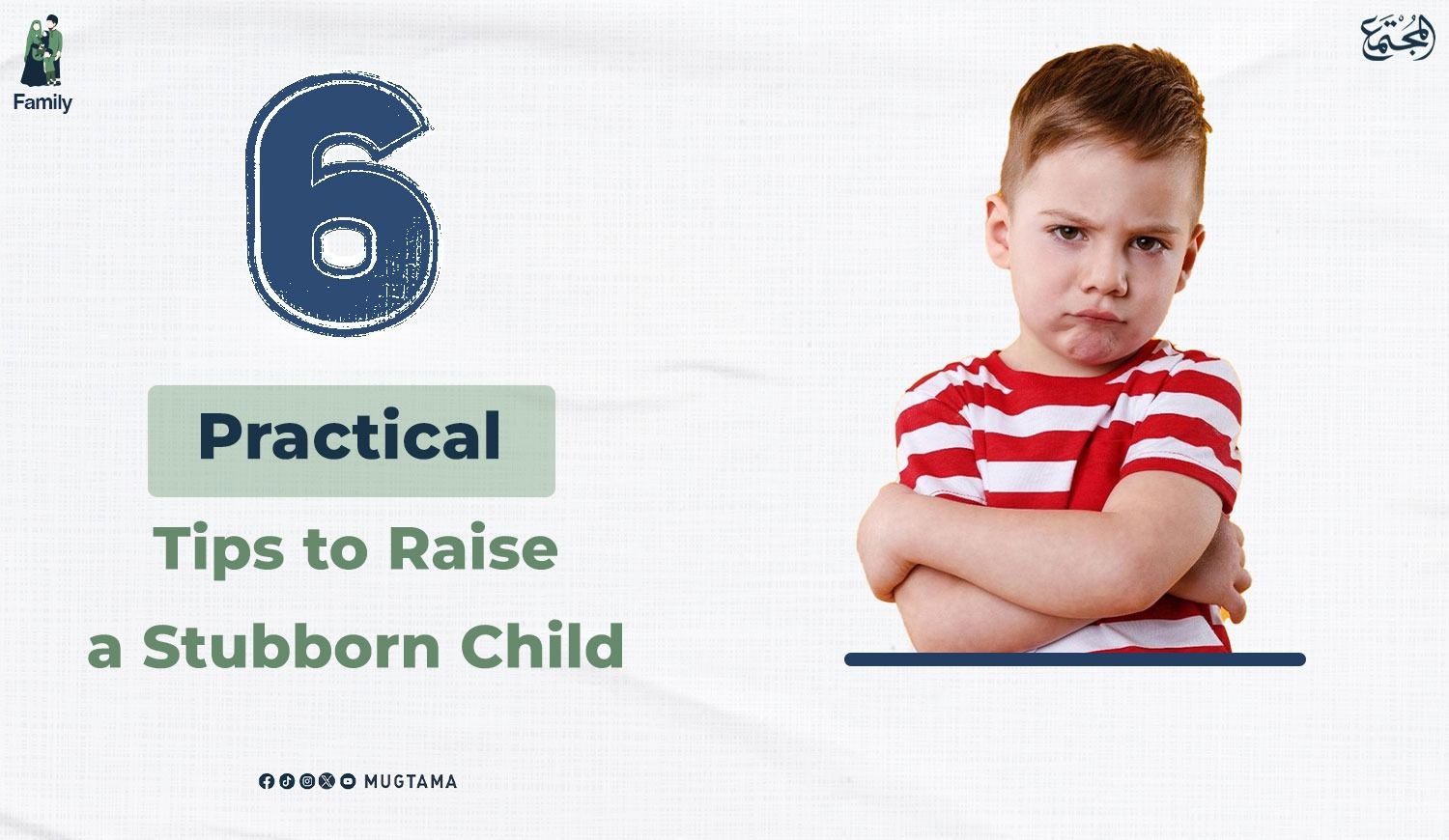6 Practical Tips to Raise a Stubborn Child

Many families complain about
struggling with their stubborn son or a child who doesn’t listen to the advice
of their parents, constantly rebels against adults, and shows clear discontent
when discussing any new family guidance.
We often hear a mother say, “My
son is stubborn,” or “My daughter is stubborn,” and she doesn’t know how to
deal with them or how to control their reactions so that they don’t become
arrogant or controlling.
To every mother and father, we
present a “prescription” for dealing with a stubborn child and how to turn this
trait into something positive and a leadership trait.
First: In the
beginning, one must understand the characteristics and psychology of the
stubborn child. Such a child tends to rebel, ask questions, and is difficult to
be convinced easily. They also like their voice and opinion to be heard, and
they show anger when something is imposed upon them. They tend to prefer
independence and adventure. Remember, stubbornness in children can be a
hereditary behavior or something acquired from their surrounding environment.
Second: Stubbornness
is a trait of successful people, and the stubborn child often displays signs of
leadership and a strong personality. This is a positive aspect that should be
acknowledged and considered, with efforts made to develop those abilities,
polish their potential, and transform their stubbornness into positive energy.
In this context, a challenge can be set for them or their stubbornness tested
in a certain matter to help them achieve something or accomplish a goal that
enables them to turn stubbornness into determination.
Third: Patience
is the key to dealing with a stubborn child, not stubbornness in return, nor
trying to break them, scold them, or humiliate them. This could escalate things
out of control and turn the matter into a power struggle within the home.
Rather, one should deal with them wisely and with understanding, engage them in
calm and logical discussions, clearly set boundaries, explain their rights and
responsibilities, and praise their abilities.
Fourth: Do not
belittle your stubborn child. Show your support and respect, not your fear, and
listen to their point of view. At times, you can even take their opinion into
consideration, give them some responsibilities, rely on them in certain tasks,
and grant them space for independence and self-expression. One day, you too
were stubborn, dear father; and dear mother. Therefore, it is merely a phase of
their life, and they will mature afterward.
Fifth: Do not
try to “win” against your stubborn child or rush to punish them. Remember,
winning a battle with your child creates a gap between you. Instead, treat them
kindly, make them responsible for their actions, remind them of Allah, and of
the rights of their parents. Then say to them: “Okay… you can decide for
yourself,” as if you are placing them in a challenge with themselves to find a
way to fulfill their need for autonomy without harming their health, safety, or
others.
Sixth: Offer
your stubborn child a set of choices to choose from. This helps them feel free
in their decision-making, that they hold the reins of control in their life,
and that they have not lost their personality and will under the authority of
their parents.
Experts say: The stubborn child
struggles for respect. So why not give them that recognition, praise them,
embrace them, treat them kindly, and offer your guidance and advice in the form
of suggestions or options? They are on the path to success, and stubbornness
might just be their way to achieving their true self.
-------------------------------------------------------------










